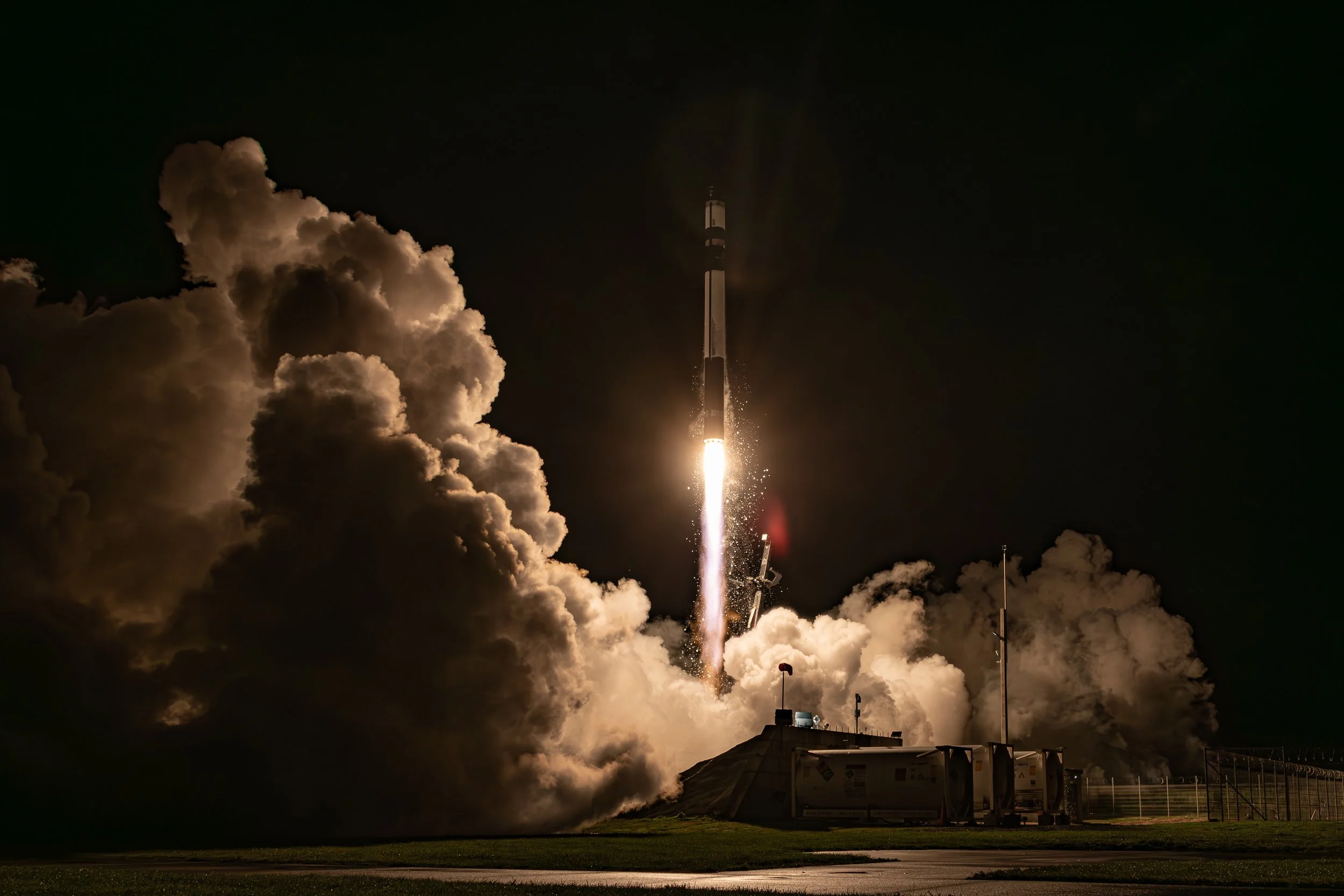Successful 1st Kinéis Launch: Rocket Lab’s Electron Successfully Places the First 5 Nanosatellites of the Constellation Into Orbit
On 20 June 2024, Rocket Lab’s Electron launcher successfully completed its 50th mission afterlaunching from New Zealand, putting into orbit the first 5 of the 25 satellites in the Kinéis constellation,Europe’s 1st constellation dedicated to the Internet of Things (IoT).
Speaking at the launch, Alexandre Tisserant, Chairman and CEO of Kinéis, said: “Kinéis is proud of the success of Electron’s 50th flight. The delicate phase of separating our 5 nanosatellites from the launcher went very well. Our teams are now working to place them in their respective orbits. These first 5 satellites in the constellation mark the start of the IoT revolution driven by Kinéis connectivity and offer the prospect of full commercial services. See you in later this year for the 2nd launch, and congratulations to the teams!”
The “No Time Toulouse” mission lifted off from Rocket Lab’s launch complex 1 in Mahia, New Zealand, on 20 June 2024 at 8:13 pm (Paris time), successfully deploying five satellites weighing 28 kg each into a low circular orbit at 635 km. This mission was the first of five Electron launches dedicated to Kinéis.
Commenting on the 50th launch of Electron, Sir Peter Beck, founder and CEO of Rocket Lab, said: “Kinéis’ precise and tailored mission achieved today is yet another demonstration of the value Electron continues to bring to the small satellite community. Congratulations to our team and thanks to our customers and supporters for helping us continue to break records and set new industry standards.”
The mission of the Kinéis IoT constellation is to connect any object anywhere in the world (including black points) and transmit useful data to users in near real time. Kinéis operates for a global market (with subsidiaries in the United States, Brazil and Singapore) in areas that today represent major challenges for mankind, its activities and its environment: prevention of natural risks (detection of forest fires, floods, drought, pollution, etc.), agriculture, traceability of wild and farmed animals, monitoring of infrastructures and energy networks, monitoring of transport and logistics, monitoring of commercial and scientific maritime activities. The applications are infinite and the benefits considerable: risk reduction, anticipation of breakdowns, optimization of activities, etc.
The successful orbiting of the first 5 nanosatellites in the Kinéis constellation would not have been possible without its technical and industrial partners:
CNES (French space agency), for the satellite command and control centre and constellation operations as an integrated team, until the handover to the Kinéis teams in 2025
Hemeria, for the development of the platform (solar panels and harnesses manufactured in-house), integration and industrialization of the nanosatellites
Thales Alenia Space, for responsibility for system architecture, payloads and the mission centre
Syrlinks, for payloads (hardware and production)
Cobham, for the co-design of the UHF-S antenna
Comat, for the co-design and production of the UHF-S antenna and the reaction wheels
Steel Electronique, for the On Board Computer (OBC)
Erems, for the satellite’s power management and distribution box
Sodern, for the star sensor
Safran, for the ground station receivers
Exail, for the system beacons (remote controls) and reference beacons (system monitoring)
Scalian, for the test benches associated with payloads and mission performance
Cegedim, to host the IT resources and provide connections with the control rooms (Kinéis and CNES) and with the ground stations.
This phase of bringing the Kinéis project to fruition has become a reality thanks to 100% French public and private funding, with support from Bpifrance, CLS, CNES, the Frère family, BNP Paribas Développement, CELAD, Maison Dassault and Ethics Group.
